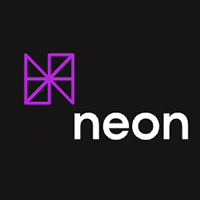 Stake Strong
Stake Strong

Staking Service Platform
Staking is a great way to maximize your holdings in staking coins. Choose the most promising projects, delegate with Stake Strong and earn 5%-25% annually.
Mina Protocol - Mainnet

APY +14%
FAQ
What is staking?
Staking is the word used to refer to a process of gaining rewards for holding certain crypto currencies. In other words, a staker contributes to the Proof of Stake network/PoS network of a certain crypto asset. Whilst staking a crypto currency, a staker makes the blockchain of that crypto currency more efficient and safer. In return, he/she receives a reward in the form of the network tokens within the same network. To produce rewards on a PoS blockchain, a node needs to assign a specific number of network’s tokens as a stake. The odds of that node being selected to authenticate the subsequent block are directly correlated to the number of tokens that are being offered as a stake. In an event in which the node successfully authenticates a block, it’s getting a reward. Naturally, authenticators lose a part of their stake if they happen to authenticate a fraudulent business transaction. This type of punishment encourages them to only authenticate the non-fraudulent business transactions.
What is Proof-of-Stake?
At its core, Proof of Stake (PoS) is a crypto consensus mechanism that is utilized for the production of new blocks. It necessitates randomly chosen validators to stake the network’s token in order to authenticate blocks and gain rewards. These authenticators lose a part of their stake if the transaction turns out to be fraudulent in its nature.
What are staking validators?
The word “validator” is used to refer to nodes responsible for authenticating transactions. Validators are backed by their stake (a certain amount of the network’s token). Selecting reliable validators increases the cost of a possible attack on the network. Validators receive cryptocurrency rewards in return for them backing the transactions with their stake.
What are delegators?
Persons that hold tokens and want to stake them but don’t want to operate a validation node are called delegators.
What are the benefits of staking tokens?
If you stake tokens, you provide assistance in safeguarding the network and receive monetary rewards in the process. It’s possible to stake by delegating your assets to validators that sort out the dealings and operate the network. Naturally, delegating your assets is a shared risk and reward business deal which might yield significant benefits to token holders over a long period. The best financial outcome is attainable when the economic goals of delegators and validators are aligned.
Are there any potential risks to understand?
Our service entails non-custodial delegations which means we don’t control your funds. No need to worry: you will always be in complete control of your digital funds and you are able to pull your delegation out at any given point in time. When you let us delegate, your funds are added to our stake virtually. The blockchain network will move the rewards to your address in an automated fashion while we withhold a small fee as a payment for our services.
Security
Our servers are set up in such a way that we can easily circumvent cyberattacks and attempts of unauthorized access. DDoS mitigation and protection services are provided by our affiliate OVH and there are several system observation protocols in place that help swiftly take care of unanticipated incidents. OVH carries out SoC 2 Type-2 security checks on a routine basis in order to maintain the highest possible levels of safety and integrity. Stake Strong staff also carries out manual checks every week to make sure that the nodes are performing at the highest possible level with no risk to the system. Encryption of secrets and credential management procedures are always at the ready. They were adapted from the HashiCorp Vault system.Inter-company info is not to be revealed under any circumstances to unsanctioned persons or legal entities. IT disaster recovery plans, business continuity management, background audits are all in place.Core framework and operational resources must always remain robust and totally functional even in unfavorable circumstances. We are utilizing top-tier data centers from all across the globe in conjunction with on-board IT experts in order to maintain high performance levels in order to thwart any dangers that might possibly arise.




